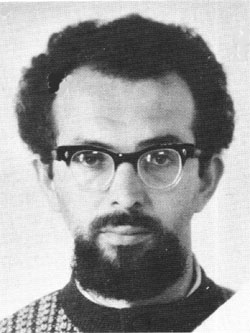 Levi Agmon (Lev Yagman)
|
|
Born in 1940 in Leningrad, he became an activist in an underground Zionist organization in 1966, and in 1970 was elected as a member of its committee. Arrested that same year, he was charged with pro-Israeli, anti-soviet Zionist activity and an illegal attempt to escape to Israel. At the2nd Leningrad trial, in May 1971 he was sentenced to 5 years imprisonment and spent his sentence in the high-security camp of Perm. Released in 1975 he left the USSR for Israel that same year. |
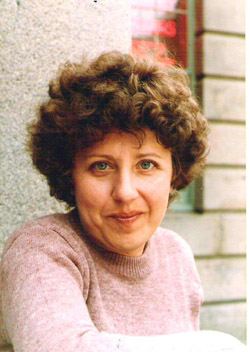 Ruth Alexandrovich
|
|
Born in 1947 in Riga, she worked there as a nurse prior to her arrest on Oct 7th, 1970 , and in May 1971 at the Riga trial, was sentenced to one year in a high-security camp. |
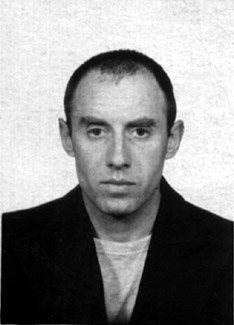 Nathan (Anatoly) Altman
|
|
Born on September 19th, 1941 in Kharkov, he
lived in Chernovtsy, Lugansk, Odessa and Riga. In 1968 he applied for the exit visa to go to Israel, but was refused. Arrested in 1970 as a member of the "Aircraft group”, he was sentenced, at the 1st Leningrad trial, to 12 years in the high-security camps of the Gulag. Later his sentence was decreased to 10 years which he spent in the camps of Pot'ma and in the Urals. In 1979, however, after "only" 9 years of imprisonment, his sentence was commuted (as it was for the majority of the members of the "Aircraft group"). When released, he managed to get to Israel on April 29th 1979. He lives in Haifa. |
 Mendel Bodnia
|
|
Born in 1937 in Dvinsk, Latvia, he grew up in Riga. His mother left the USSR for Israel several years before his arrest. He himself applied for an exit visa many times, but was always refused. Arrested on June 10th 1970, he was sentenced, at the 1st Leningrad Trial in December 1970, to 4 years of high-security imprisonment in the Gulag. |
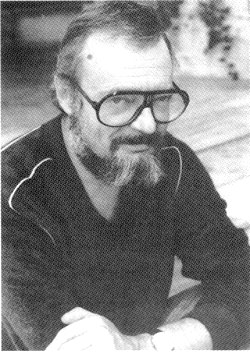 Victor Boguslavsky
|
|
Born in 1940 in Leningrad, he began his Zionist activities at the age of 17 distributing materials about the State of Israel and the history of the Jewish people and Zionism. In 1968 he joined an underground Zionist organization in Leningrad, where he was responsible for the release of the "samizdat" monthly. In 1970 he published an open letter to the West, where he called upon the Soviet authorities to release his comrades arrested for their attempt to hijack an airplane to fly to the West and then onto Israel. He was arrested and sentenced, at the2nd Leningrad trial, to 3 years imprisonment in the Gulag. Released in 1973, he left the USSR for Israel together with his family. He died in 1991. |
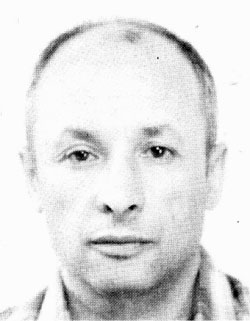 Hillel Butman
|
|
Born in 1932 in Leningrad he became one of the most prominent activists of the Jewish national movement in Leningrad, which flourished during the 1950s and 1960s. In 1959, with his self-taught Hebrew, he taught groups of Jewish youth for which purpose he, together with some friends, organized ulpanim (classes) to study Hebrew, the history and traditions of the Jewish people and the history of Israel. Arrested in1970, he was charged with membership of an underground Zionist organization, with the distribution of anti-Soviet Zionist literature, and with the organization of the hijacking of an aircraft in an attempt to fly to Israel. Sentenced atthe 2nd Leningrad trial to 10 years of the highest security imprisonment, he was sent to serve his sentence in the infamous Vladimir Central prison. Released in 1979, he was able to get to Israel in the same year. He wrote several relevant and interesting books in both Russian and Hebrew. |
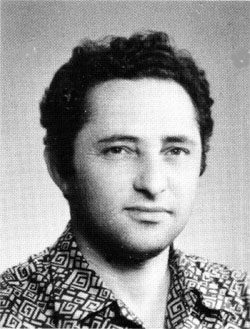 David Chernoglaz (Maayan)
|
|
Born in 1939 in Leningrad, into a traditional Jewish family, . he was expelled from the university in 1956 for his Zionist activities which included establishing and supporting connections with ideological Zionists in other cities of the Soviet Union. The group, of which he was a member, was collecting membership fees to cover the cost of the printing of brochures and travelling to Zionist meetings in various cities of the USSR. In 1970, as a member of the group that planned to hijack an aircraft to fly it to Sweden, he was arrested along with the entire group, transferred to Kishinev, and in June 1971, atthe Kishinev trial, was sentenced to 5 years in prison. He served his sentence in the camps of Mordovia and in the Kishinev prison. In 1975 he was released, and in the same year he emigrated to Israel. |
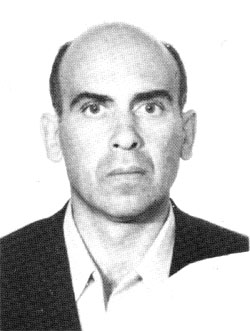 Shlomo Dreizner
|
|
Born in 1932 in Leningrad, he began collaborating with an underground Zionist organization in 1959. By1966 he was among the leaders of the educational groups, whose members studied Hebrew and Jewish history, also exchanging information about the State of Israel. In 1970, together with the group of Zionists involved in the operation of hijacking an aircraft en route to Sweden, he was arrested and in May 1971 at the 2nd Leningrad trial was sentenced to 3 years imprisonment, which he spent in a high-security camp in Mordovia. Released in 1973 he left for Israel that same year. |
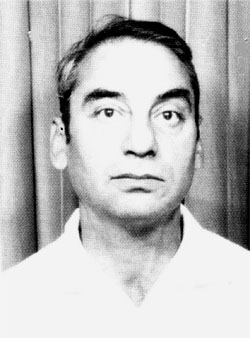 Mark Dymshits
|
|
Born on May 10th, 1927 in Lozovaya, a small town in the Kharkov province, he enrolled at a flying school in 1946 graduating in 1949. As a fighter pilot he served in the Soviet Air Force for 11 years and in 1960 retired with the rank of Major. After the Six-Day War he began to feel deep concern for the fate of the young Jewish State, and about the anti-Semitic and anti-Israeli atmosphere that pervaded the Soviet Union. From that point on he formed a strong identification and self-determination as a Jew in every way, deciding to leave the Soviet Union by any means possible It was he who initiated the idea of hijacking a passenger aircraft to fly to Sweden, and from there, to Israel. On June 15th 1970, after thorough preparation, Dymshits and a group of Riga and Leningrad Zionists, decided to take the aircraft, but they were all arrested at the Smolny airport an hour before the planned operation. All the members of the group of the “never-even-started” hijacking were put on trial receiving unusually severe sentences. Mark Dymshits, as the initiator of the hijacking and the putative pilot, was sentenced to be executed. However, as a result of extensive international protests, the death sentence was commuted to15 years imprisonment in the Gulag. The process createda large international resonance: it stimulated world public attention and pointed to the disenfranchised position of Jews in the Soviet Union, to the fate of those who desired to live in their historic motherland - Israel-, and to the hostile attitude towards them by the Soviet regime. The “Aircraft trial” contributed greatly to the sharp awakening of national self-consciousness in the Jews of the Soviet Union and initiated the wide movement of Soviet Jews for emigration to Israel. As a result of this, over a period of several years, approximately 200, 000 Soviet Jews obtained visas for travelling to Israel. In 1979 Dymshits was unexpectedly released, put on an airplane and sent to America, from where he promptly emigrated to Israel. He is currently a member of the Council of the Organization of the Prisoners of Zion. |
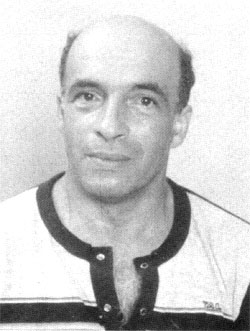 Boris Furman
|
|
Born in 1937 in Leningrad, he became an active participant in an illegal Zionist movement, organizing an underground ulpan at his home and distributing Zionist songs among the members. Arrested for his Zionist activities in 1970 he was sentenced to 1.5 years in the Gulag and was also restricted to live in specified cities of the Soviet Union after his sentence expired. Released in 1972, he left for Israel in the same year. He participated in the Yom Kippur War. |
 Alexander Galperin
|
|
Born on the 18th of August 1946 in Kishinev into a traditional Jewish family, he graduated from the Leningrad Polytechnic University in 1969. On the 23rd of July, 1970, he was arrested and tried at the Kishinev trial in June 1971 where he was sentenced to 2.5 years of high-security imprisonment. |
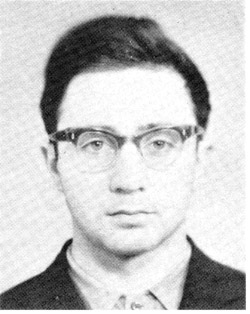 Anatoly Goldfeld
|
|
Born in 1946 in Leningrad into an assimilated Jewish family, he graduated from the Leningrad Polytechnic University in 1969. Working as an engineer, he was arrested on June 15th 1970. His trial took place in June 1971 (Kishinev trial), where he was sentenced to 4 years of high-security imprisonment in the Gulag. Released in 1974 he left for Israel during the same year. |
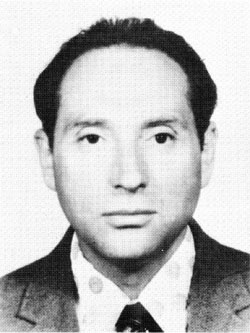 Lassal Kaminsky
|
|
Born in 1930 in the Ukraine, he became an ardent Zionist with the formation of Jewish State in 1948. In 1968 he became a member of an underground Zionist organization in Leningrad, where he studied Hebrew, the history of the Jewish people and the history of Israel. In 1970 he was elected to the Committee of this organization, and in the same year was arrested on the charge of Zionist activities and of the desire to emigrate to Israel. In 1971, at the 2nd Leningrad trial, he was sentenced to 5 years imprisonment which spent in the prisons of Pot'ma and Mordovia and in various camps in the Gulag. As a result of international pressure he was released in 1975 and got to Israel that same year. |
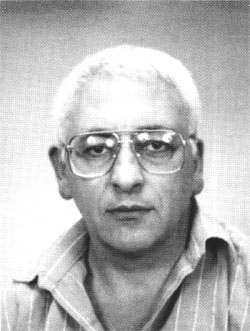 Arie Khnoh
|
|
Born in 1944 in Mordovia, into a traditionally Jewish family, he began applying for a visa to emigrate to Israel in 1968 but was always refused permission. He then joined a group of Zionists, who were planning to hijack an aircraft to fly to Sweden. In June 1970 he was arrested together with the entire group at the Smolny airport an hour before the planned operation. In December 1970 he was tried at the 1st Leningrad trial and sentenced to 15 years imprisonment in a high security Gulag camp. The sentence was later reduced to 10 years. In 1975, in retaliation for his Zionist anti-Soviet activities in the camp, he was transferred from the camp to the high-security prison in Vladimir. After his release in 1979, he emigrated to Israel. |
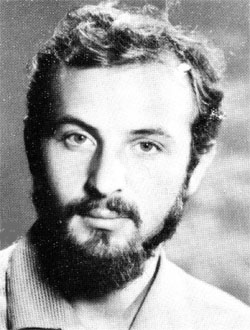 Harry Kizhner
|
|
Born on October 27th, 1947 in Kishinev, he was made aware of his Jewishness by the rabid anti-Semitism in the Soviet Union and became a Zionist.. He and his friends organized an underground group to study the history of the Jewish people, Zionism and the history of Israel. He also organized ulpanim for studying Hebrew. Arrested in 1970 on the charge of Zionist activities, he was sentenced to 2 years imprisonment at the Kishinev trial of 1971. His sentence was served in the Kishinev Prison and also in Gulag camps in Mordovia. He was released in 1972 and within a couple of months left for Israel. |
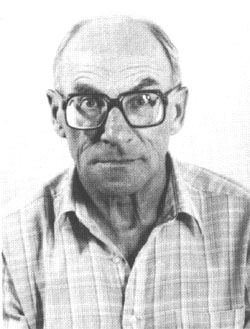 Lev Korenblit
|
|
Professor Lev Korenblit was born in Bessarabia (Romania) on the 13th of June, 1922. At the age of 10 he became an active member of the Zionist organization Gordonia, involved in Zionist propaganda. In 1940, after the Soviet occupation of Bessarabia, he went underground, organizing groups which studied Hebrew and Jewish history. During WWII he served in the Red Army. In the 1960s he became a Zionist activist in Leningrad and was elected to the Committee of the underground Zionist organization of Leningrad. In 1969-1970 he was an editor of the "samizdat" journal. He provided ideological support for the Dymshitz group, which planned to hijack an aircraft in Leningrad. In 1970 he was arrested, together with the other members of the group, and in May 1971 at the 2nd Leningrad trial, he was sentenced to 3 years imprisonment in Mordovian camps. Released in 1973, he left for Israel within several weeks. |
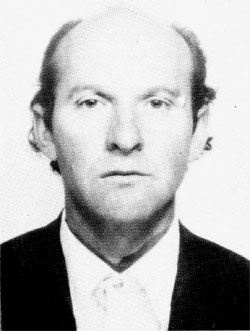 Michael Korenblit
|
|
Born on November 4th, 1937 in Ukraine, he studied medicine. The Six-Day War in 1967 and anti-Semitism in the Soviet Union led him to become aware of his Jewishness and the ideal of Zionism As an activist in the underground Zionist movement in the Soviet Union, he organized ulpanim for the study of Hebrew and the history of Jewish people, shared his knowledge of Zionism and the state of Israel with other people and also sent letters of protest to the Soviet authorities. Arrested in 1970 on the charge of Zionist anti-Soviet activity, he was sentenced at the 2nd Leningrad trial, in May 1971, to 7 years imprisonment in the Gulag. He continued his Zionist activities even while in the Mordovian camps. Released in 1977, he left for Israel in the same year. |
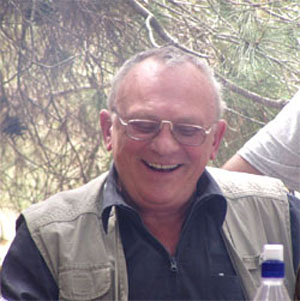 Edward Kuznetsov
|
|
Born in 1939 in Moscow to a Russian mother and Jewish father, he became a student in the Department of Philosophy at Moscow State University. In 1961, while still a student, he was arrested for anti-Soviet activity and sentenced to 7 years imprisonment in the high-security camps of the Gulag. In the camps he identified himself as a Jew. After his release in 1970 he married Silva Zalmanson and worked as a statistician in Riga Psychiatric Hospital. On June 15th, 1970 he was arrested and in December 1970, at the 1st Leningrad trial was sentenced to death. This sentence was commuted to15 years imprisonment in a highest-security camp. In 1979 he was released as part of a spy exchange and allowed to emigrate to Israel. |